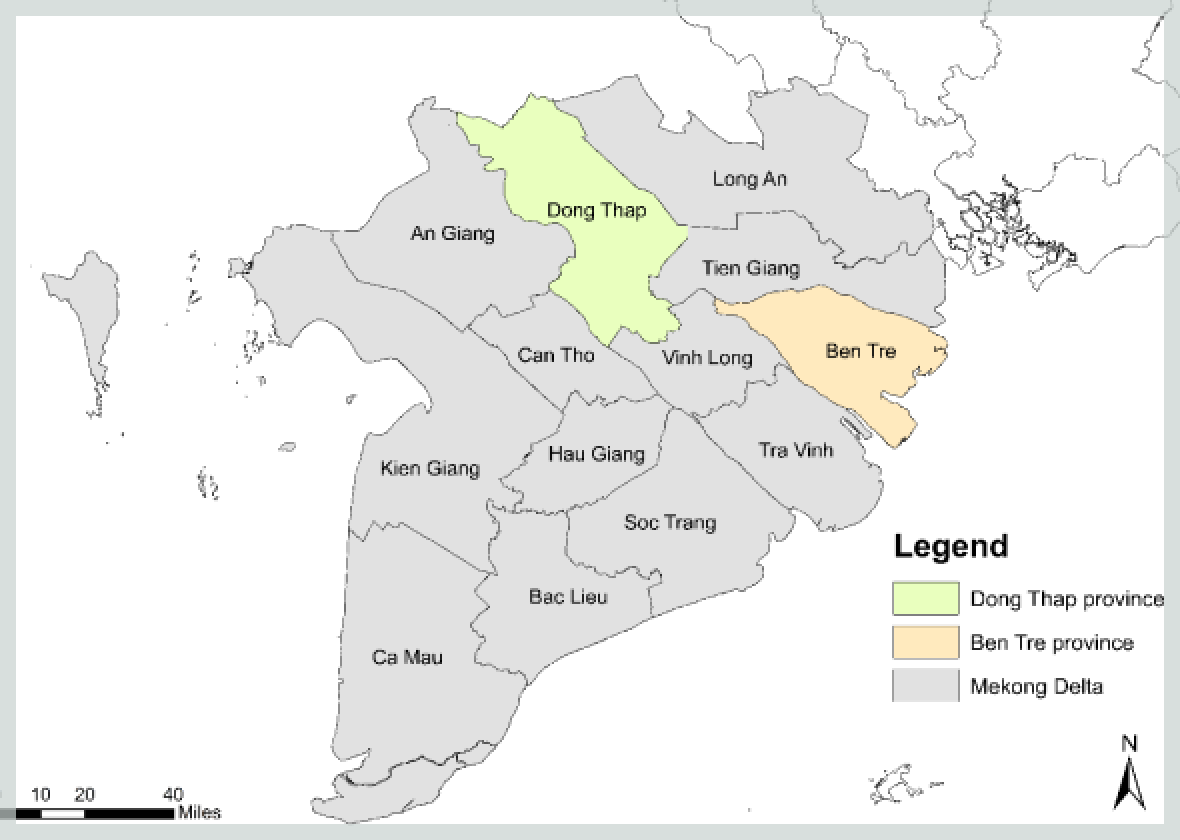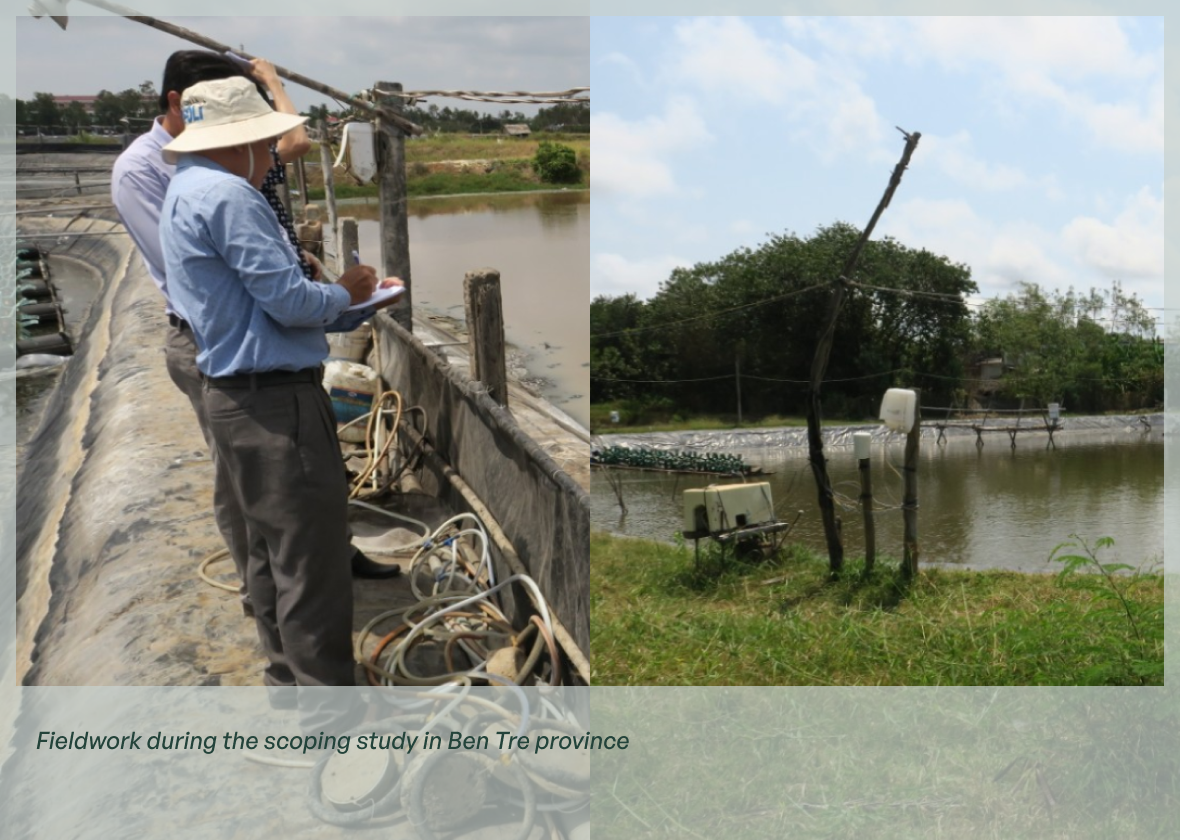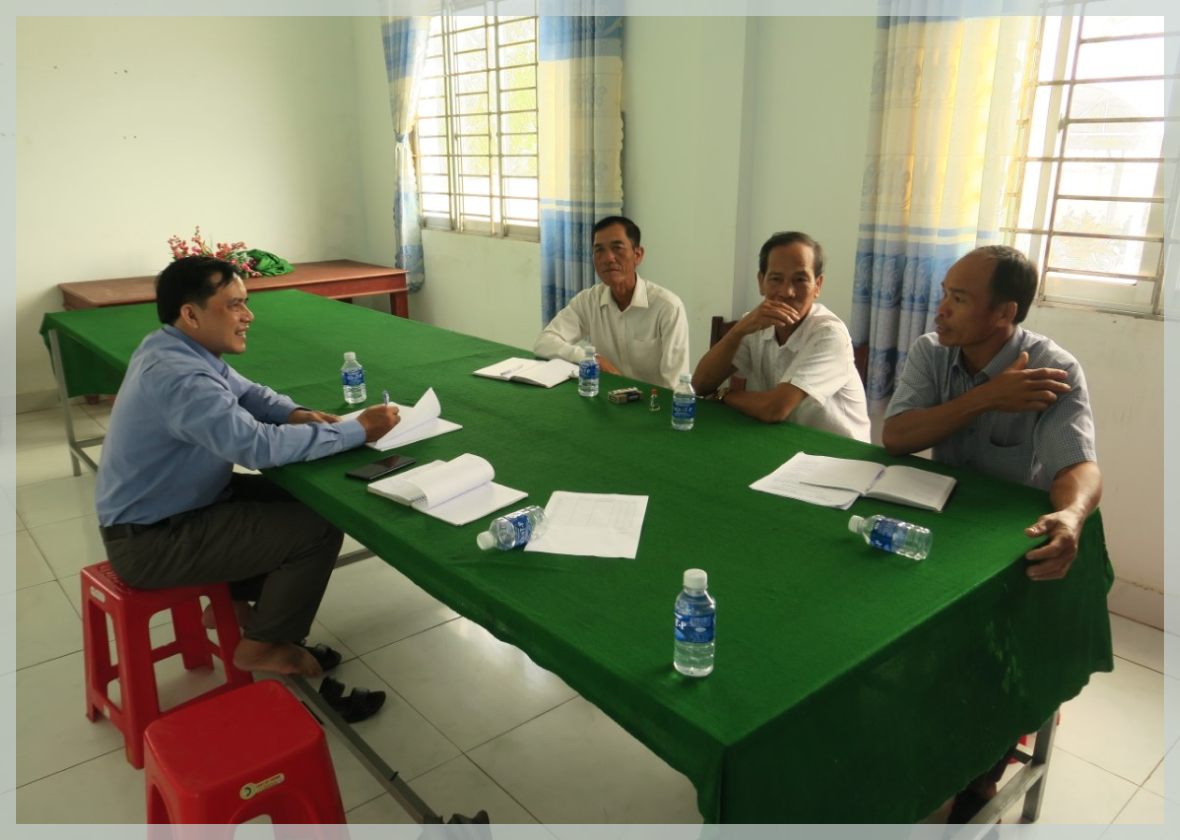Data-driven framework on changing agriculture in the Mekong Delta





Vietnam’s Mekong Delta (VMD) produced more than 55% of the country’s rice and more than 70% of farmed aquaculture products in 2022, making agriculture the backbone of the VMD’s economy. The application of innovative techniques in agriculture is a work in progress, which has contributed to boosting farm productivity and income of local farmers over the last decades. Since 2008 IHE Delft has established a partnership programme with Vietnam’s Directorate General for International Cooperation on water and development, which is referred to as the DUPC programme. Within the DUPC3 project “Trans-Path-Plan: Water Transformation Pathways Planning”, the research team of the Vietnam node is exploring the adoption of innovative techniques and transformation pathways in agriculture in the Mekong Delta with a theoretical and an empirical approach.
The situation
Being in low-elevation proximity to the sea, the VMD faces multiple water-related risks. The farming systems in the delta are determined by a balance of the water cycles of the Mekong River and the tidal regimes of the sea. In the VMD, water is the backbone of the local economy and livelihood, and water governance is key for a prosperous delta that relies largely on agriculture. Farmers in the VMD have experienced dynamic changes in their farming systems over the years, with many innovative practices that have been developed and applied. In response to the ongoing changing climate, several adaptations have also been developed, principally by applying hard protective infrastructures or soft measures such as changing land use and cropping systems, or a mix of these measures.
The research team led by the Institute for Circular Economy Development (ICED) Vietnam National University – Ho Chi Minh City (VNU-HCM) is focusing on two research locations: Ben Tre province in the coastal zone of the VMD, and Dong Thap province in the floodplains of the upper VMD.
In the coastal areas in Ben Tre province, salinity intrusion is one of the biggest challenges for agriculture and local livelihoods. Local farmers either practise shrimp aquaculture, or a rice-shrimp combination, growing rice in the wet season and shrimp in the dry. This is well adapted to the fluctuation of salinity levels between dry and wet seasons. But in areas close to the sea, as salinity intrusion increases, shifts from rice shrimp to shrimp or from semi-intensive shrimp to intensive shrimp with a higher stocking density are increasing. Intensive shrimp cultivation provides high profit as well. There are other drivers of change, such as government policies and infrastructure development, and the shifts are associated with different pathways and influences at multiple levels.
The research team conducted a scoping study in April and another field visit in November 2023 in Ben Tre province. Interviews with local authorities and farmers have been conducted to explore the drivers and influences behind these changes. Now the research team is working on a literature review to link the Motivation and Ability (MOTA) framework with other theories and frameworks – for example, the 4Ps (the four key factors of Producer-Place-Price-Policy that influence the adoption decisions) framework and theory of diffusion of innovation to cover different aspects of motivation and ability to change dynamic processes of diffusion and adoption of innovation. Indicators and transformational indices linked to these frameworks have been developed. The next step will be linking the empirical data with literature review and framework findings. Rice shrimp and shrimp farming systems in the Mekong Delta will be used as case studies to illustrate the new framework.
In upstream parts of the VMD with more freshwater, rice is cultivated twice or thrice all year round. Rice farming innovations have been promoted by the government and development organizations over the last decades. A transition to green agriculture, such as organic farming, circular agriculture, and high-tech agriculture, is increasingly practised in rice production, driven by the low productivity of traditional farming models, increased demand for food quality standards and environmental protection, and responses to market signals.
These adaptation actions correspond to various development pathways and create different impacts on diverse groups and socio-ecological systems in the delta. The research team, in parallel with the revision of the MOTA framework, is doing an extensive literature review to develop a framework that is able to assess the performance of the agricultural innovation scaling process. Such a framework can help reveal why some innovations are successfully scaled up in rice farming systems in the delta, while others fail to do so, and how these scaling processes contribute to sustainable development goals at the delta level.
A kick-off workshop with experts and local officials was carried out in May 2024 in the VMD to present initial findings and discuss the challenges facing these farming systems and transformation pathways in agriculture in the delta. The workshop provided a good opportunity for the research team to discuss the research plan and topics with the stakeholders working in the delta . Drivers, barriers and enablers, and other related factors such as the ability for change and impacts were the topics discussed at the workshop.
Authors & Contributors
